Battle of the Somme: How the Berkshires won in 23 minutes
- Published
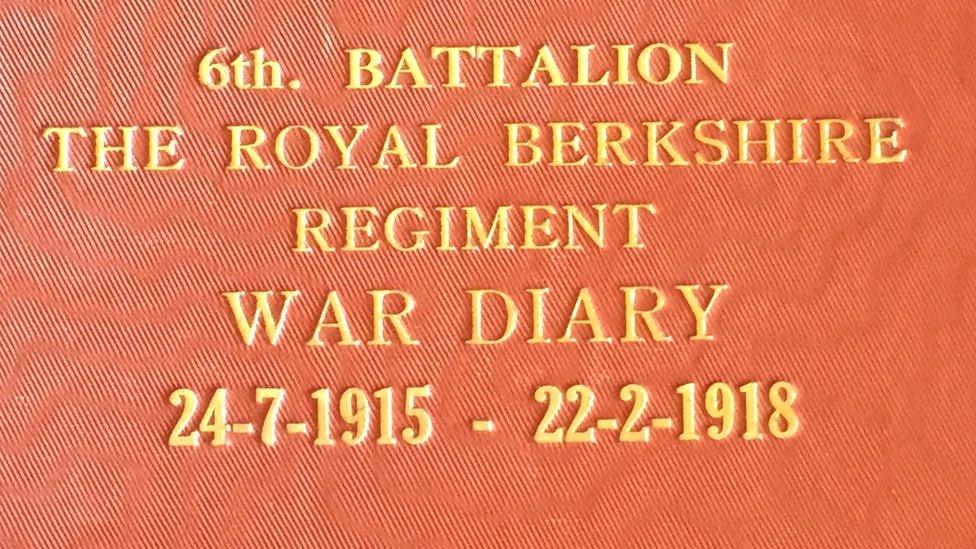
While the first day of the Battle of the Somme is rightly regarded as a disaster, there were sections of the front line where British forces were victorious. On a day when tens of thousands perished on the fields of France the 656 soldiers of the 6th Royal Berkshire Battalion completed their mission in just 23 minutes.
With so many surviving the day, their story has been preserved in detailed minute-by-minute records and diary entries.
The battalion was one of the many volunteer units recruited across the country after the regular army suffered heavy casualties in 1914 and 1915.
JH Harwood worked at the county council and was walking to work when he spontaneously chose to sign up.
In his diary, the private wrote: "We were repairing the roads at Windsor Park at that time, but on the way I met a friend who was going to enlist.
"Instead of going on to work, I went back home, changed in to my best clothes and went with him to the recruiting office at Reading."
Before the first push on the Somme, Field Marshal Haig warned experienced officers of the new infantry's inexperience.
He told them: "We are working with new army troops and unfortunately we have not got those fine fellows that we had at the beginning of the war."
The Royal Berkshires were given the objective to advance 3,000 yards from the British front line and seize strategic posts around the bombed-out village of Montauban.
During the advance the German machine-gun turrets, in an area called Casino Point, would be destroyed by mines.
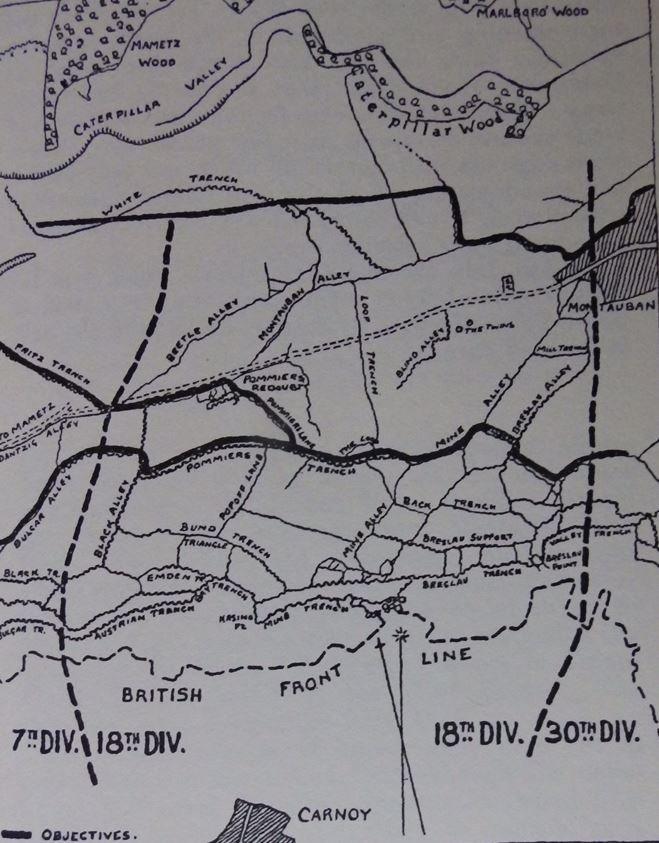
The 6th Royal Berkshires had to advance 3,000 yards and recapture Montauban, a bombed-out village
Across the battlefield the men were to go over the top at 07:30, the men of the 6th Berkshires, however, went early - before a 5,000lb mine was due to be detonated beneath the German machine gun posts.
At 07:27 the battalion began its advance through No Man's Land and - as the first wave of men advanced - the generals decided to detonate the mine in order to stop the barrage of machine-gun fire from the Germans.
Pte Fred Henwood said: "Our men were so mad to get there they raced forward under cover of smoke bombs.
"One of our companies, being well in front, got to the German parapet and was just landing in [the Germans'] trench when the mine went up and blew most of that company up with it."
L/Cpl Fisher remarked in the diary: "I saw a sight I will never forget. A giant fountain, rising from our line of men, about 100 yards from me. Still on the move I stared at this, not realising what it was... I saw huge slabs of earth and chalk thudding down, some with flames attached, on to the troops as they advanced."
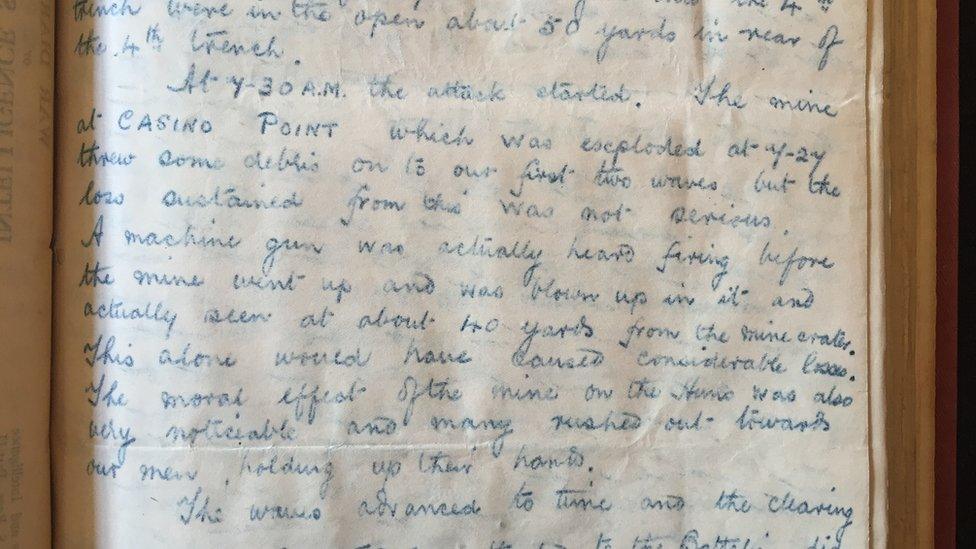
Detailed diaries from infantrymen in the 6th Royal Berkshires have been kept by The Rifles Berkshire and Wiltshire Museum
By 07:30 a second wave who had seen the fate of their friends moved across the battlefield, still taking heavy artillery fire.
Military historian Martin McIntyre says: "Common sense started to come in and people moved shell hole to shell hole. So the lines that you see on TV weren't there. This was little groups of people moving forward together.
"The second line and the third and the fourth kept coming forward, they joined up and became one or two companies from one battalion with the officers and the sergeants that were left."
Military historian Martin McIntyre describes how the 6th Royal Berkshires were affected after the mine at Casino Point was detonated
Private AJ Gosling wrote: "At the front line I had the sad experience of seeing two mates in front of me fall but I still carried on, passing a good many wounded men on the way."
By 07:50, 20 minutes after the battalion went over the top, they had seized Pommiers Trench and began taking German prisoners.
After the event Major General Ivor Maxse, who commanded the 18th division, praised the work of the men of the battalion.
"The 6th Royal Berkshire reached Pommiers Trench in less than 20 minutes, whereas the 8th Norfolks reached the same line several hours later.
"The quick moving battalion followed its barrage close up, the slower battalion lost touch with its barrage in 10 minutes."
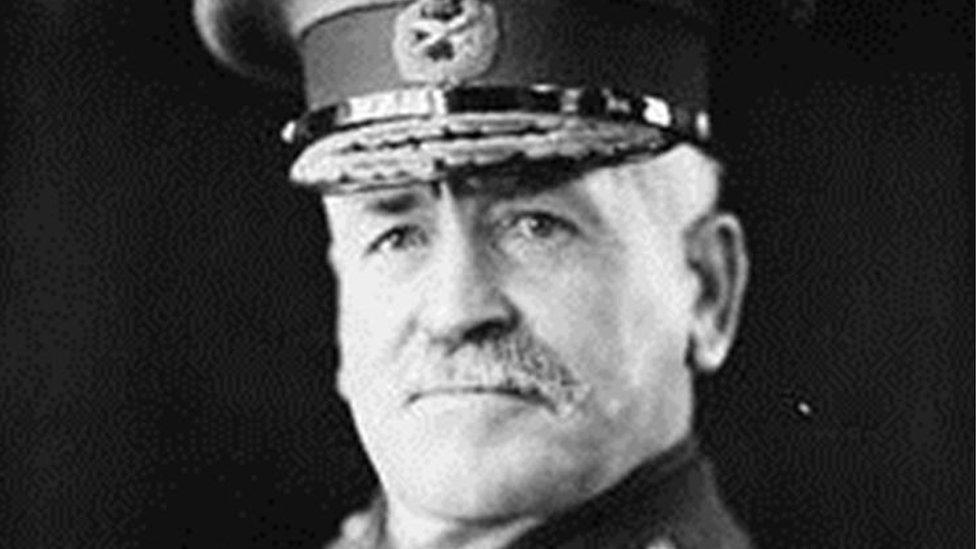
Major General Ivor Maxse applauded the 6th Royal Berkshires for their swift advance on the Germans
There are differing accounts of how the Royal Berkshires dealt with their German prisoners.
In his diary, Private JH Harwood said: "[The Germans] were holding up photographs of their families and offering watches and other valuables in an attempt to gain mercy but as the Germans came up the steps, a soldier, not from our battalion, shot each one in the stomach with a burst from his Lewis gun."
Some of the Berkshires continued fighting through the day, pressing forward, capturing more German trenches, killing and being killed.
Pte Gosling, from Abingdon, lived to see the sunset on July 1st 1916.
"The next day we were organised into burial parties. It fell to my lot to bury my own section, men I'd served with since joining the battalion."

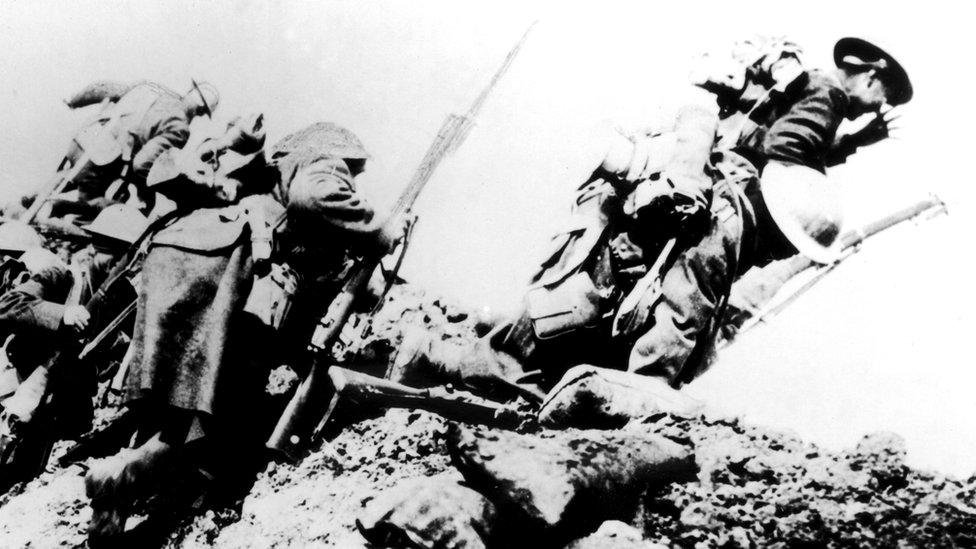
The Battle of the Somme
Began on 1 July 1916 and was fought along a 15-mile front near the River Somme in northern France
19,240 British soldiers died on the first day - the bloodiest day in the history of the British army
The British captured just three square miles of territory on the first day
At the end of hostilities, five months later, the British had advanced just seven miles and failed to break the German defence
In total, there were over a million dead and wounded on all sides, including 420,000 British, about 200,000 from France and an estimated 465,000 from Germany
Find out more:
